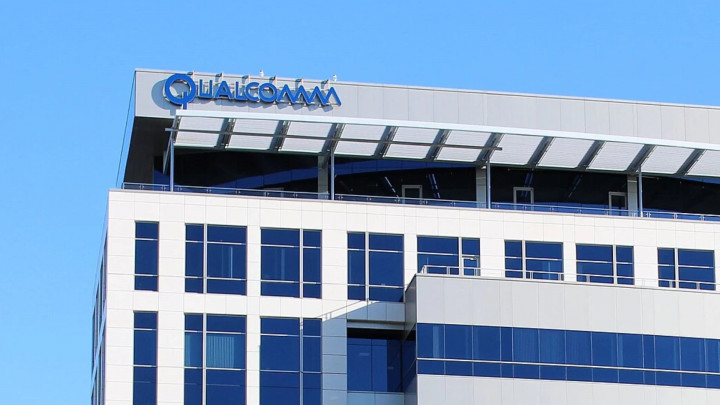Qualcomm's Reported Interest in Intel: A Potential Semiconductor Shake-Up
According to reports from The Wall Street Journal that surfaced earlier this year, Qualcomm recently explored a potential acquisition approach towards Intel, a move that sent shockwaves through the semiconductor industry and caused significant fluctuations in the stock prices of both companies. This unexpected, though highly speculative, move could fundamentally reshape the technology sector and establish a new balance of power in the world of chip manufacturing.

Market Reactions to the News
The news of the potential acquisition interest reverberated through the stock market at the time:
- Intel shares saw a notable surge: initially jumping by 8%, they closed the trading day with a 3.31% increase.
- Conversely, Qualcomm shares fell by 4% during afternoon trading.
This market reaction underscored the sheer scale of the potential deal and its perceived impact on the structure of the semiconductor industry.
Qualcomm's Potential Motivations for Acquisition
Several strategic reasons could have driven Qualcomm's interest in acquiring Intel:
- Expansion into the PC Market: Qualcomm would aim to build on its recent success with Snapdragon X chips powering Windows on ARM devices, gaining a much larger foothold.
- Industry Consolidation: An acquisition could reduce competition in the PC chip market, consolidating power against rivals like AMD and potentially Apple's silicon efforts.
- Leveraging Intel's Current Challenges: At the time, Intel had reported significant losses (around $1.6 billion mentioned) and executed substantial layoffs, potentially making it appear as a more attainable, albeit complex, target.
- Accessing Intel's Capabilities: Gaining access to Intel's extensive chip design expertise (particularly in x86 architecture) and, crucially, its vast manufacturing (foundry) capabilities under its IDM 2.0 strategy.
- Strengthening Position in Emerging Tech: Bolstering Qualcomm's standing in burgeoning areas like AI-integrated solutions for PCs, where both companies are investing heavily.
This reported interest surfaced when Qualcomm was posting positive quarterly results driven by growth in its mobile and automotive sectors, while Intel faced headwinds such as losing Apple as a major modem customer (though regaining some foundry business) and reported disappointment from some PC manufacturers regarding the performance of certain recent processor generations.
Challenges Facing the Potential Acquisition
A hypothetical Qualcomm-Intel merger would face significant regulatory and operational hurdles:
- Antitrust Scrutiny: A deal of this magnitude would undoubtedly face intense regulatory examination globally, drawing parallels to NVIDIA's failed $40 billion attempt to acquire Arm in 2020, which was blocked by regulators worldwide concerned about competition.
- Integration Difficulties: Qualcomm, primarily a fabless chip designer (outsourcing manufacturing), would need to navigate the immense complexity of integrating Intel's sprawling manufacturing operations (an Integrated Device Manufacturer - IDM). Merging vastly different business models and cultures would be a monumental task.
- Financial Considerations: Intel's market capitalization (around $93 billion at the time of the report) and annual revenue ($54.2 billion reported) presented a substantial financial barrier for Qualcomm, likely requiring complex financing arrangements.
Potential Outcomes of an Acquisition (if it were to happen)
An acquisition of Intel by Qualcomm, however unlikely, could lead to significant shifts in the semiconductor landscape:
- Consolidation of Chip Design Expertise: Merging Qualcomm's mobile and connectivity prowess with Intel's PC and server chip experience could accelerate innovation, particularly in ARM-based computing across different device types.
- Restructuring of Intel's Business Units: Qualcomm might consider divesting certain Intel divisions, such as potentially spinning off or seeking partners for the capital-intensive foundry business, to streamline operations and possibly appease regulators.
- Increased Competition in AI-Focused Chips: A combined entity could potentially mount a stronger challenge to Nvidia's dominance in AI processing for data centers and edge devices.
- Potential Impact on the Windows Ecosystem: The acquisition could significantly accelerate the transition towards ARM-based Windows PCs, potentially altering the long-standing Wintel dominance.
It is crucial to reiterate that, at the time of these reports, the deal was described as "far from certain," and neither company provided official statements confirming any negotiations.
Summary
The reported potential interest from Qualcomm in acquiring Intel highlighted a potentially revolutionary shift in the semiconductor industry. While such a move could offer significant strategic advantages for Qualcomm, it would face immense challenges, including regulatory hurdles and integration complexities. The outcome of such a hypothetical deal would profoundly impact the future of the technology sector, especially concerning the convergence of PC and mobile markets. Developments in the weeks and months following the initial reports were key in determining whether this ambitious acquisition scenario had any basis in reality, and ultimately, no such deal materialized.





